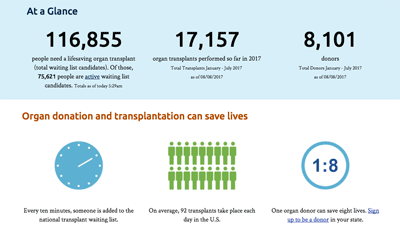Are your kidneys available to me? - Sixth in a series
A general understanding of chronic kidney disease (CKD) and its treatment is important for any who would pass judgment on whether kidney transplants are ethical, so let’s take a look.
Some forms of kidney disease stem from heredity or environmental factors, but most CKD results from diabetes, high blood pressure and old age. A number of medications can harm our kidneys including pain meds, aspirin, ibuprofen, antibiotics; and alcohol and street drugs like heroin and cocaine are culprits, too. (ref)
Our kidneys remove waste from our bodies including drugs, balance our fluids, help to regulate blood pressure, control production of red blood cells, and manufacture a form of vitamin D that contributes to bone health. (ref)
Diabetes and hypertension are the leading causes of kidney failure for adults. Kidney failure is called end-stage kidney disease (ESRD), leaving a person three options: 1. No treatment, but adjust diet or take medication to help symptoms; 2. Dialysis (two forms); and 3. a transplant.
Undoubtedly, any of us who has a loved one with ESRD would want the best option for their overall health. It would be beyond sad to see them suffer without relief. We probably would initially embrace transplantation as wise and desirable.
 Many facts about the prevalence of ESRD and CKD are on the internet, and we find that CKD moved from 27th in the list of causes of death worldwide in 1990 to 18th in 2010. This advance up the list was second only to that for HIV and AIDS. Kidney failure statistics rise in countries where the number of older people is increasing. (ref)
Many facts about the prevalence of ESRD and CKD are on the internet, and we find that CKD moved from 27th in the list of causes of death worldwide in 1990 to 18th in 2010. This advance up the list was second only to that for HIV and AIDS. Kidney failure statistics rise in countries where the number of older people is increasing. (ref)
It is worth noting that CKD can be slowed or stopped with early diagnosis and treatment, and today there are over-the-counter tests for the condition.
In the graphic, we see that about 117K people need a lifesaving organ transplant and only about 17K organ transplants have been performed so far as of mid-August, 2017. Statistics do not make clear from where or whom organs for transplant are received. But we can see that there is a wide gap between supply and demand.
It is stated that —
About 30 Americans a day either die on the waiting list or are removed from it because they have become too ill to receive a transplant. Taxpayers also bear a significant burden in the case of kidneys because of the special status of renal dialysis within the Medicare program. In 1972, Congress mandated that Medicare cover the costs of care for end stage renal disease regardless of patient age. In 2011, over 500,000 people took advantage of this benefit at a cost of over $34 billion, which is more than 6% of Medicare’s entire budget. (ref)
With such staggering costs, it is easy to see why a cost-benefit analysis of government compensation of kidney donors has been researched. A summary of the study follows.
From 5000 to 10,000 kidney patients die prematurely in the United States each year, and about 100,000 more suffer the debilitating effects of dialysis, because of a shortage of transplant kidneys. To reduce this shortage, many advocate having the government compensate kidney donors. This paper presents a comprehensive cost-benefit analysis of such a change. It considers not only the substantial savings to society because kidney recipients would no longer need expensive dialysis treatments—$1.45 million per kidney recipient—but also estimates the monetary value of the longer and healthier lives that kidney recipients enjoy—about $1.3 million per recipient. These numbers dwarf the proposed $45,000-per-kidney compensation that might be needed to end the kidney shortage and eliminate the kidney transplant waiting list. From the viewpoint of society, the net benefit from saving thousands of lives each year and reducing the suffering of 100,000 more receiving dialysis would be about $46 billion per year, with the benefits exceeding the costs by a factor of 3. In addition, it would save taxpayers about $12 billion each year. (ref)
Chronic kidney disease is widespread, expensive, and projected to afflict nearly 17% of our population by 2030. Curing it is a medical priority. WaitListZero has lots of statistics that underscore the great need for donors, and its leaders have donated a kidney — They lead by example.
All around, we see pressures building to solve this societal dilemma.
Prev | Next